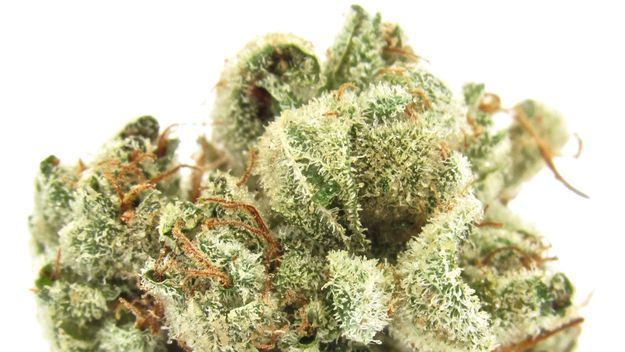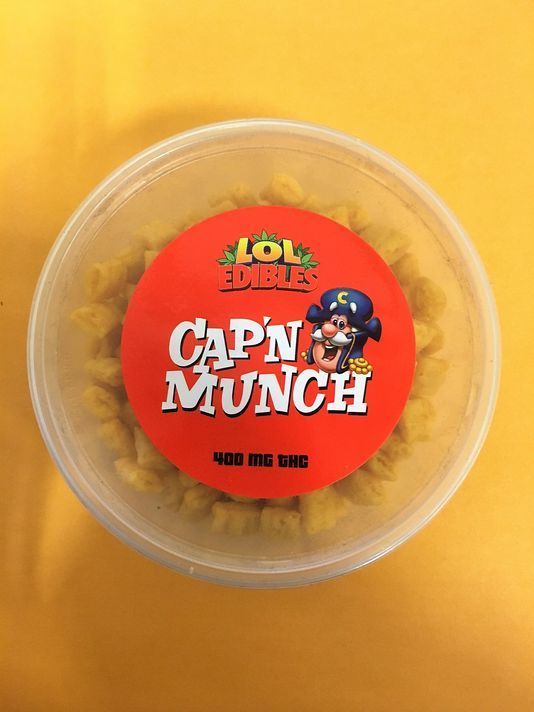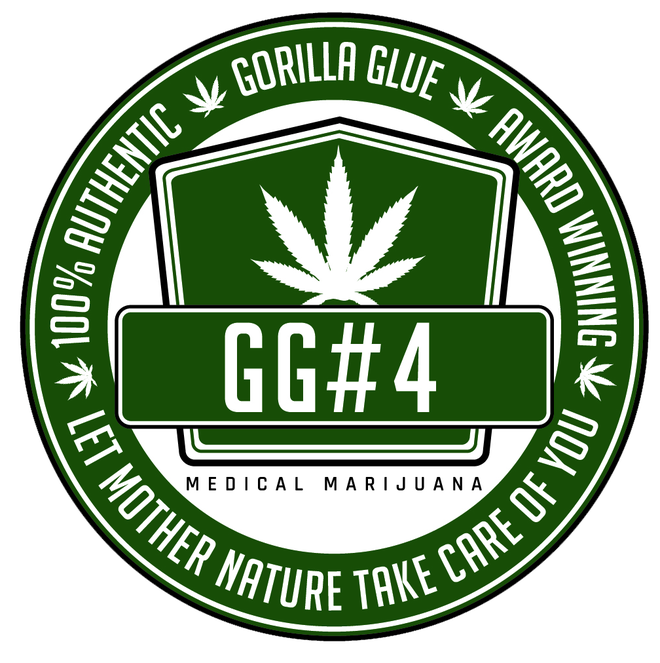Five or six years ago, medical marijuana grower Don Peabody was trimming his harvest when he got a phone call. To his surprise, Peabody’s hand was so sticky from his weed’s resin that as he went to hang up the phone, the handset stuck to his palm.
Peabody was reminded of the popular, super-strong adhesive called “Gorilla Glue,” so he dubbed his super-sticky strain “Gorilla Glue #4”. The strain went on to become the Prada of cannabis, highly sought by connoisseurs. The potent hybrid strain took top accolades at leading pot competitions in Michigan and southern California. In 2015, it won “best hybrid flower” at the famed High Times Cannabis Cup world championship in Jamaica.
But the fame has become something of a curse. This summer, Peabody’s Nevada-based cannabis licensing company “GG Strains” is embroiled in a landmark trademark infringement lawsuit filed by The Gorilla Glue Company of Ohio, makers of the liquid adhesive.
In March, the 18 year-old, privately held glue firm based near Cincinnati filed a federal lawsuit claiming GG Strains’ business infringes on and dilutes its “famous, valuable brand.” The Glue Company did not respond to interview requests.
“We understand where they’re coming from,” GG Strains CEO Catherine Seven said in a recent interview.
Almost all social media mentions of #GorillaGlue involve dank buds, not adhesive applications. GG Strains has double the Instagram followers of the glue company. The adhesive glue brand’s voice is completely drowned out by weed fans on Instagram and other social media sites.
“If you get glued, you’re gonna tell the world,” Seven said.
The Gorilla Glue case could have far-reaching implications for the cannabis industry where — due to the clash between state and federal laws — intellectual property guidelines remain largely unsettled. Cannabis producers have long borrowed from pop culture to name their once-illicit marijuana flowers and infused foods and drinks. Medical patients and recreational shoppers across the country can regularly spot strains named Dirty Sprite, Candyland or AC/DC on licensed store shelves. Now, legalization could force brands to be more original.
“There’s a lot of work the industry has to do about how it identifies its product,” said Shabnam Malek, a partner at Brand & Branch, an Oakland law firm specializing in cannabis intellectual property law.
In most industries, the owners of a hit product trademark its name before they enter it in contests or soon after it wins. The federal government, however, doesn’t issue trademarks for marijuana strains, since the drug remains federally illegal.
Instead, GG Strains applied for state trademarks and has received them in Nevada and Colorado. GG Strains has applied for a California state trademark, but has yet to receive it. GG Strains sees itself as a licensing firm. So when a pot farmer in a legal state believes it’s growing Gorilla Glue #4, it can ask GG Strains to certify the product based on its look, smell and chemical composition. GG Strains has certified producers in California.
That’s valuable, because in the cannabis world, strain names like Gorilla Glue #4, Sour Diesel and Blue Dream lack official certification. What one pot shop calls “Sour Diesel” might not exactly match the look, taste and effect of “Sour Diesel” sold down the road. And if customers buy all the Sour Diesel in stock, unsavory stores have been known to slap “Diesel” on a similar strain to keep sales going.
GG Strains’ entire business model of certifying flowers with its mark has become endangered, and so far, GG Strains has been unable to settle with the Gorilla Glue Company.
Curtis Smolar, a San Francisco lawyer with De La Peña & Holiday, said court cases like this could hinge on the reasonable possibility of confusion between the products. For example, a cannabis soda brand that looked like Coca-Cola’s famous trademark would likely be infringing. Still, this particular area of the law remains almost completely undefined.
“It’s going to be an incredible patchwork” of state, federal and trademark law, he said.
Seven minimized the issue of dispensary customers confusing the extremely potent, chocolate-fuel-smelling cannabis flower bud with a liquid polyurethane adhesive found in hardware stores.
But as the case moves toward trial, GG Strains is concerned the case was filed in a federal court in Ohio rather than in a Nevada state court. Nevadans legalized both medical and recreational cannabis and could provide a more sympathetic hearing; Ohio legalized medical marijuana in 2016, but legal sales have not begun.
For now, strain naming is still an informal process, and there are no laws requiring accurate strain labeling at the retail counter. But as the market grows, more companies are trying to protect their intellectual property.
Malek said the country of Canada will require packaging to be labelled with a strain name. If a product is labelled with a popular strain name like Girl Scout Cookies or Zkittlez “are you requiring someone to commit trademark infringement?” she said.
In recent years, The Girl Scouts of the United States of America have sent cease and desist letters to at least two California dispensaries selling strains named “girl scout cookies.” The Girl Scouts declined to be interviewed.
Aaron Justis, CEO of the Los Angeles dispensary Buds & Roses, received a complaint from the Girl Scouts in 2016, so he changed the strain’s name to “veganic platinum cookies,” which he said both honored the strain’s origins and satisfied the Girl Scouts.
“If you want to build a brand it’s gotta be something you can trademark,” he said.
For now, GG Strains is requesting customers and the media refer to Gorilla Glue #4 by the moniker “GG#4” to avoid confusion. However, GG Strains’ web site address is stillwww.gorillaglue4.com.
Pot Culture
Cannabis producers have long-borrowed from pop culture. Now, legalization could force producers to branch out. Here’s 15 potentially infringing product names:
- Zkittlez – An award-winning California strain is a homonym of a leading candy from the Wrigley Company.
- Sour Patch Kids – This cookie hybrid strain spotted in the Bay Area shares the name of a leading candy.
- Girl Scout Cookies – One of the world’s most popular strains has drawn the ire of the leading youth development organization.
- Gorilla Glue #4 – America’s #1 strain references a popular adhesive company.
- Skywalker OG – A popular type of OG Kush takes it name from the Lucasfilm world.
- Green Hornet Gummies – An edibles brand name-checks a major action hero in the DC Comics universe.
- Gushers – A cannabis strain that shares the name with a popular child’s lunch snack made by General Mills.
- Candyland – A new cookies hybrid cannabis strain that shares the name with a popular child’s board game by Hasbro.
- Grape Ape – A longtime purple cannabis strain shares its name with a ‘70s TV show.
- Animal Crackers – A new cookie hybrid references a popular child’s snack.
- CBD-rich Shirley Temple – A new CBD-rich strain takes the name of a deceased American film icon.
- Super Glue – This Gorilla Glue variant shares its name with another popular adhesive brand.
- Berry White – An old-school cannabis strain that is a homonym of a famous soul singer.
- AC/DC – A popular CBD-rich strain shares the name of an especially litigious Australian rock band.
- Dirty Sprite – A new type of cannabis flower borrows its name from the leading international soft drink produced by Coca-Cola.


